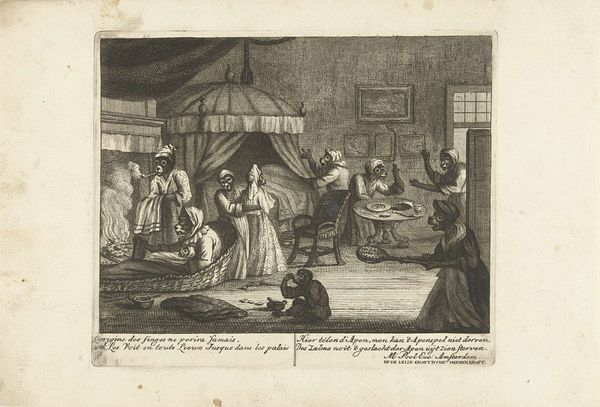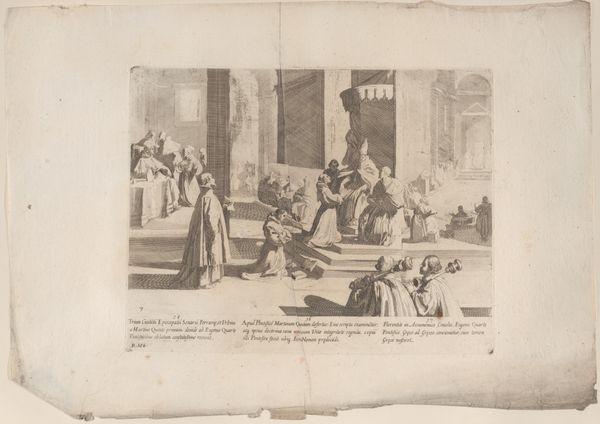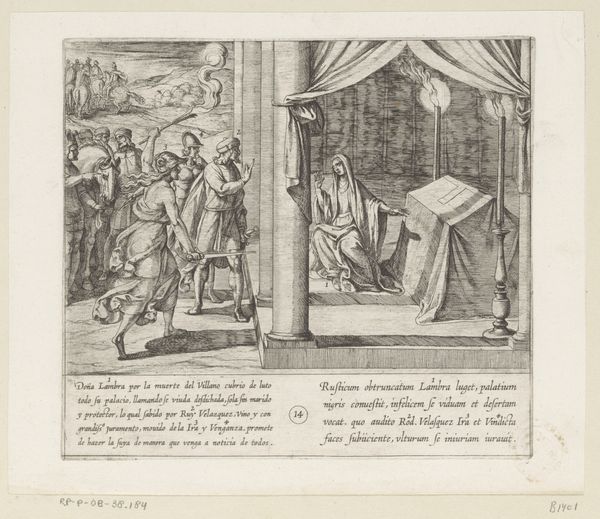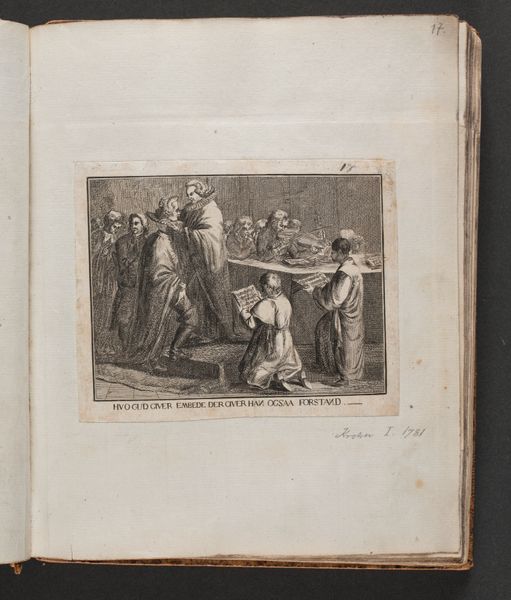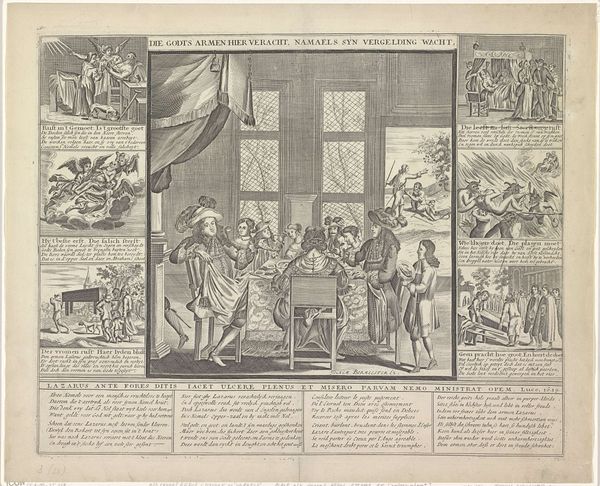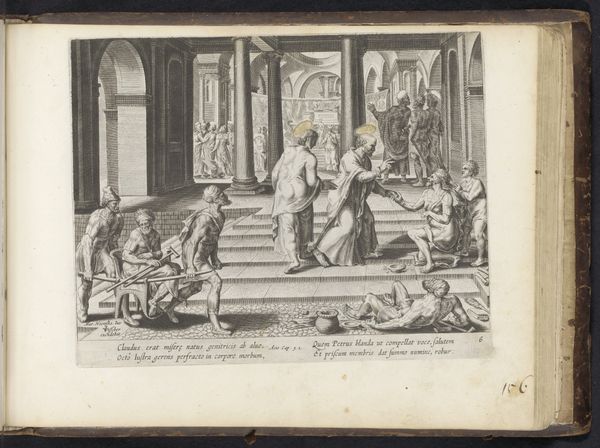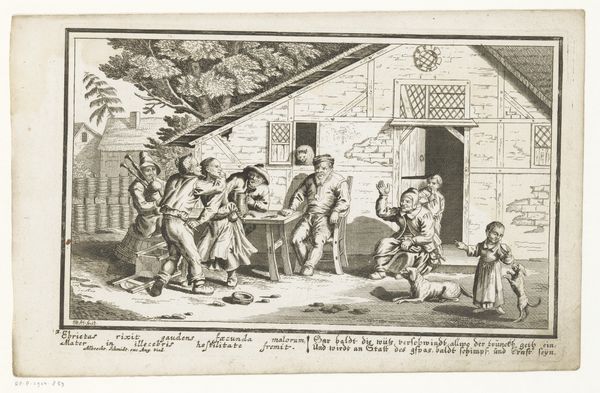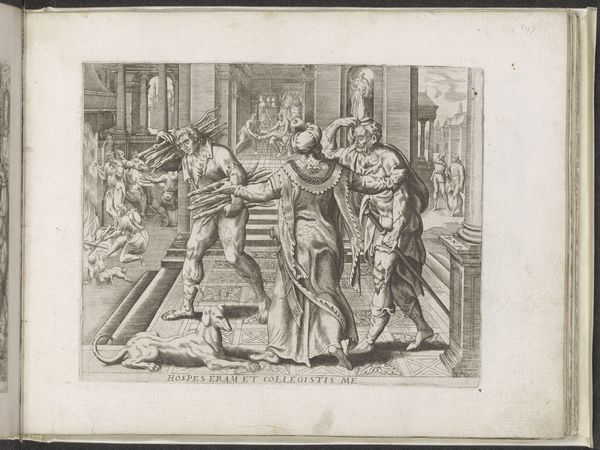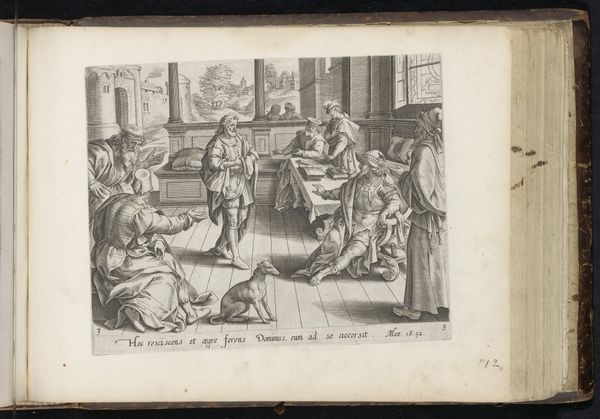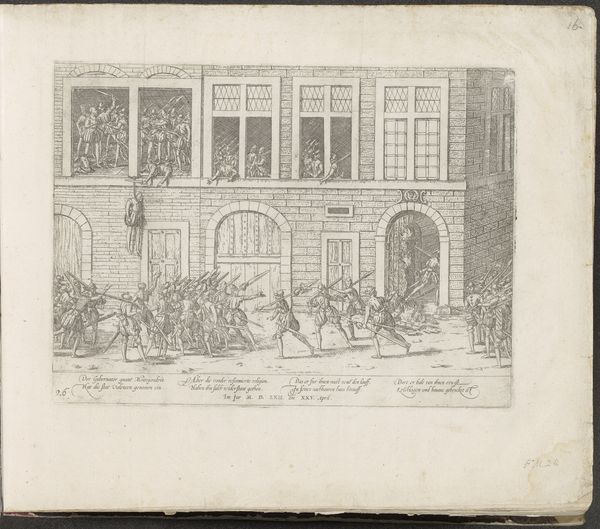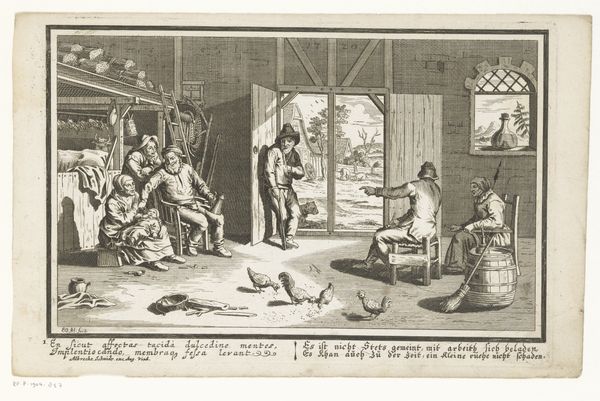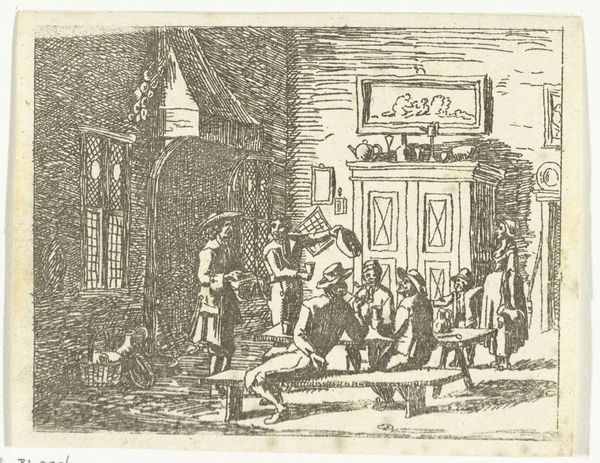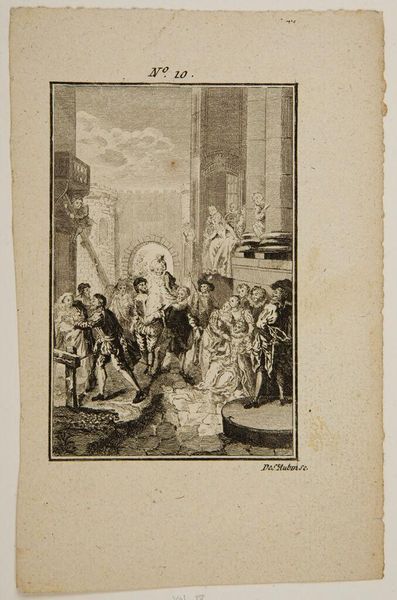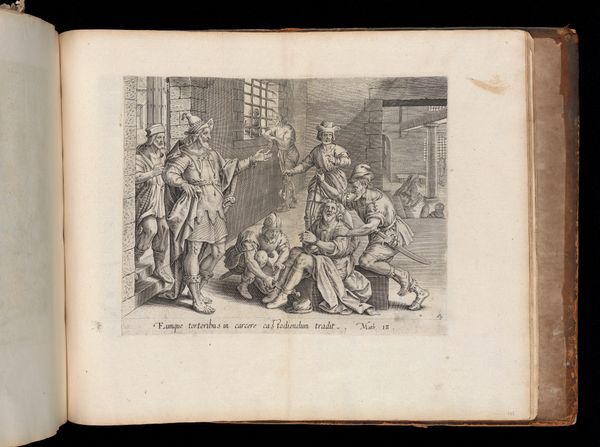
print, engraving
#
portrait
#
baroque
# print
#
figuration
#
line
#
history-painting
#
engraving
Dimensions: height 241 mm, width 283 mm
Copyright: Rijks Museum: Open Domain
This engraving of Emperor Rudolf II on his deathbed was made in 1612 by Frans Hogenberg, an artist known for his printmaking. The process of engraving involves using a tool called a burin to carve lines into a metal plate, which is then inked and printed. Look closely at the image and notice the fine lines and details achieved through this meticulous technique. The cross-hatching creates shading and depth, bringing the scene to life. Engraving was a crucial medium for disseminating information and imagery in the early modern period. Prints like this one allowed for the widespread circulation of news and depictions of important events, shaping public perception and collective memory. Consider the labor involved in creating such a detailed image. The engraver would have needed skill and patience to produce the plate, reflecting the value placed on craftsmanship and the power of images in shaping historical narratives. In appreciating this print, it's easy to forget the material labor that went into its creation, but we shouldn't.
Comments
No comments
Be the first to comment and join the conversation on the ultimate creative platform.
